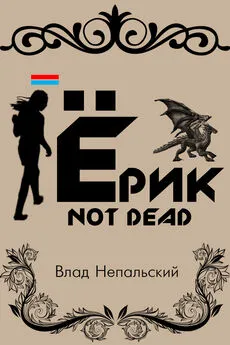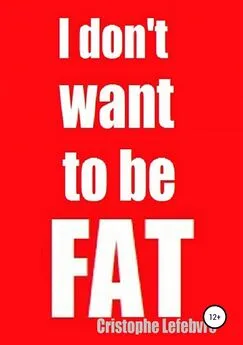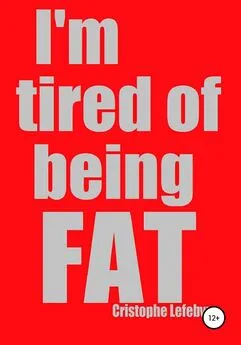Meg Cabot - Size 12 Is Not Fat
- Название:Size 12 Is Not Fat
- Автор:
- Жанр:
- Издательство:неизвестно
- Год:неизвестен
- ISBN:нет данных
- Рейтинг:
- Избранное:Добавить в избранное
-
Отзывы:
-
Ваша оценка:
Meg Cabot - Size 12 Is Not Fat краткое содержание
HEATHER WELLS ROCKS!
Or, at least, she did. That was before she left the pop-idol life behind after she gained a dress size or two—and lost a boyfriend, a recording contract, and her life savings (when Mom took the money and ran off to Argentina). Now that the glamour and glory days of endless mall appearances are in the past, Heather's perfectly happy with her new size 12 shape (the average for the American woman!) and her new job as an assistant dorm director at one of New York's top colleges. That is, until the dead body of a female student from Heather's residence hall is discovered at the bottom of an elevator shaft.
The cops and the college president are ready to chalk the death off as an accident, the result of reckless youthful mischief. But Heather knows teenage girls… and girls do not elevator surf. Yet no one wants to listen—not the police, her colleagues, or the P.I. who owns the brownstone where she lives—even when more students start turning up dead in equally ordinary and subtly sinister ways. So Heather makes the decision to take on yet another new career: as spunky girl detective!
But her new job comes with few benefits, no cheering crowds, and lots of liabilities, some of them potentially fatal. And nothing ticks off a killer more than a portly ex-pop star who's sticking her nose where it doesn't belong.
Size 12 Is Not Fat - читать онлайн бесплатно полную версию (весь текст целиком)
Интервал:
Закладка:
Everyone thinks they’ve seen me somewhere before. They just can’t ever figure out where. I get “Didn’t you go to the prom with my brother?” a lot. Also, “Weren’t you and I in one of the same classes in college?”
Which is especially weird, because I never attended a single prom, much less college.
“I used to be a singer” was what I’d said to Dr. Jessup, the day of my job interview. “A, um, pop singer. When I was, you know. A teenager.”
“Ah, yes,” Dr. Jessup had said. “‘Sugar Rush.’ That’s what I thought, but I wasn’t sure. Can I ask you a question?”
I’d twisted uncomfortably in my seat, knowing what was coming. “Sure.”
“Why are you applying for a job in a residence hall?”
I’d cleared my throat.
I wish VH1 would do a Behind the Music on me. Because then I wouldn’t have to. Explain to people, I mean.
But it’s not like I’m Behind the Music material. I was never famous enough for that. I was never a Britney or a Christina. I was barely even an Avril. I was just a teenager with a healthy set of lungs on her, who was in the right place at the right time.
Dr. Jessup had seemed to understand. At least, he’d tactfully dropped the subject after I mentioned the stuff about my mom fleeing the country with my manager—and oh yeah, my life’s savings—my label dropping me, and my boyfriend, too, in that order. When I was offered the position of administrative assistant to Fischer Hall, at a starting salary that equaled what I used to earn in a week on the concert circuit, I accepted without hesitation. I wasn’t seeing much of a long-term career in waitressing—which, for a girl who doesn’t even like standing up to wash her hair, can be brutal—and getting a college education seemed like a good idea. I have to wait until I pass my six months’ probation—just three more to go—but then I can start enrolling in as many courses as I want.
The first class I’m going to take is Psych 101 so I can see if I’m really as filled with neuroses as Rachel and Sarah seem to think.
Now Dr. Jessup is inquiring about Rachel’s mental health.
“How’s she holding up?” Dr. Jessup wants to know.
“I guess she’s okay,” I say.
“You should buy her some flowers, or something,” Dr. Jessup says. “Something to perk her up. Candy, maybe.”
I say, “Oh, that’s a good idea,” even though I have no clue what he’s talking about. Why should I buy flowers or candy for Rachel? Does Elizabeth Kellogg’s death affect Rachel more than it affects Julio, the head of the maintenance staff, who’ll probably be the person hosing Elizabeth’s blood out of the elevator shaft later on? Is anybody buying candy for Julio?
Maybe I should just buy flowers for both of them.
“Rachel’s not used to the city yet,” Dr. Jessup is saying, by way of explanation, I suppose. “This is bound to shake her up a little. She’s not a jaded New Yorker yet, like some of us. Right, Wells?” He winks.
“Right,” I say, even though I still have no idea what he means. Would a Whitman Sampler be enough, or did he want me to go all the way to Dean & Deluca’s and buy a bunch of those petits fours? Which would be okay, because then I can get myself some of those chocolate-covered orange peels.
Except… Rachel doesn’t eat candy. It’s not on the Zone. Maybe I should get her some nuts?
But our conversation comes to an abrupt end when President Allington comes striding into the lounge.
I’ll tell you the truth. I never recognize Phillip Allington at first glance, even though I’ve been seeing him get off the elevators every weekday morning since last June, when I started working at Fischer Hall.
The reason I never recognize President Allington is because President Allington doesn’t exactly dress like a college president. His ensemble of choice is white trousers—which he continues to wear well after Labor Day, regardless of Miss Manners—gold New York College T-shirt (tank top for really humid days), Adidas, and, in inclement weather, a gold and white New York College letter jacket. According to another article I found in Justine’s files, the president feels if he dresses like a student, he’ll be more accessible to them.
But I’ve never seen a New York College student dressed in the school colors. They all wear black, to blend in with the rest of the New Yorkers.
Today President Allington has opted for the T-shirt rather than the tank, even though the temperature outside is over seventy degrees. Well, maybe he had a meeting of the board of trustees to attend, and wanted to dress to impress.
It isn’t until all the other administrators immediately rush over to him to make sure the president knows what an integral part he or she is playing in the resolution of what will no doubt be referred to on Monday in the student-run newspaper as “The Tragedy” that I’m like, “Oh, yeah. That’s the president.”
Ignoring everyone else, Dr. Allington looks directly at Dr. Jessup and says, “You should do something about this, Stan. This is not good. Not good at all.”
Dr. Jessup looks as if he wishes he were the one at the bottom of the elevator shaft. I don’t really blame him, either.
“Phil,” he says to the president. “It happens. In a population this big, there are bound to be some deaths. We had three last year alone, and the year before that, there were two—”
“Not in my building,” President Allington says. I can’t help thinking that he is trying to sound like Harrison Ford in Air Force One (“Get off my plane”).
But he sounds more like Pauly Shore in Bio-Dome.
This seems to me like an appropriate time to go back to my office. I find Sarah there sitting at my desk, talking on the phone. No one else is around, but there’s still a disagreeable amount of tension in the room. It seems to be emanating from Sarah, who slams the phone down and glares at me.
“Rachel says we have to cancel the hall dance tonight.” She is practically glowering.
“So?” This sounds like a reasonable request to me. “Cancel it.”
“You don’t understand. We’ve lined up a real band. We stand to lose about fifteen hundred dollars from this.”
I stare at Sarah.
“Sarah,” I say. “A girl is dead.Dead.”
“And by veering from our normal routine because of her selfish act,” Sarah says, “we will only cause her death to be romanticized by the student population.” Then, coming down off her grad student high horse for a second, she adds, “I guess we can make back the lost revenue in T-shirt sales. Still, I don’t see why we should cancel our dance, just because some nutcase took a dive off the top of an elevator.”
And people say show biz is rough. They’ve obviously never worked in a dorm.
Excuse me, I mean, residence hall.
5
I don’t see how
We could have drifted so far apart
Seems like just yesterday
You were calling me baby
Now I’m alone
And I can’t help crying
Do Over
Baby I want a
Do Over
’Cause I’m not ready
To let you go
“Do Over”
Performed by Heather Wells
Composed by Dietz/Ryder
From the album Sugar Rush
Cartwright Records
Being this is New York City, where so many unnatural deaths occur every day, it ends up taking the coroner’s office four hours to get to Elizabeth’s body.
The coroner arrives at three-thirty, and by three thirty-five, Elizabeth Kellogg is declared dead. Cause of death, pending an investigation and autopsy, is recorded as acute trauma, in the form of a broken neck, back, and pelvic bone, in addition to multiple fractures to the face and extremities.
Call me a dreamer, but I don’t think anybody in the student population will be romanticizing her death when they find this out.
Worse, the coroner says he thinks Elizabeth has been dead for nearly twelve hours. Which means she’s been lying in the bottom of that elevator shaft since the night before.
And okay, he says she died on impact with the cement floor, so death was instantaneous. It’s not like she’d lain there, alive, all night.
But still.
There’s no hiding the coroner’s van, or the body that is eventually trundled out of the building and into it. By four o’clock, the entire student population of Fischer Hall knows there’s been a death. They also know, once the elevators are turned back on, and they are finally allowed to take them back to their floors, how she died. I mean, they’re college students: They’re not stupid. They can put together two and two and come up with four.
But I can’t be too concerned with how the seven hundred residents of Fischer Hall are dealing with the news of Elizabeth’s death. Because I am too busy being concerned with how Elizabeth’s parents are dealing with the news of her death.
That’s because it was decided by Dr. Jessup—a decision backed up by Dr. Flynn—that because of Rachel’s previous contact with Mrs. Kellogg concerning Elizabeth’s guest privileges, she should be the one to make the call to the dead girl’s parents.
“It will be less of a shock,” Dr. Flynn assures everyone, “for the Kelloggs to hear the news from a familiar voice.”
Sarah is unceremoniously banished from the office once the decision is made, but Dr. Jessup asks me to stay.
“It’ll be a comfort to Rachel,” is what he says.
He clearly hasn’t seen Rachel in action in the cafeteria, cussing out the salad bar attendants for accidentally putting full-fat ranch dressing in the fat-free ranch dispenser, the way I had. Rachel is hardly the type who needs comforting.
But who am I to say anything?
The scene is excruciatingly sad, and by the time Rachel hangs up the phone, I have what feels like an oncoming migraine as well as an upset stomach.
Of course, it could be the eleven Jolly Ranchers and the bag of Fritos I’d had in lieu of lunch. But you never know.
These symptoms are made worse by Dr. Jessup. Chagrined by Dr. Allington’s remarks, the assistant vice president has thrown caution and New York City health codes to the wind, and is smoking energetically, his rear end resting against the edge of Rachel’s desk. No one offers to open a window. This is because our office windows are on the ground floor, and every time you open them, some wit walks up to them and yells, “Can I have fries with that?” into our office.
It is right then that it occurs to me that Rachel is finished with her phone calls, and that I am no longer needed to be a comfort to her. There is nothing more I can do to help.
So I stand up and say, “I’m going to go home now.”
Everyone looks at me. Fortunately Dr. Allington has long since departed, as he and his wife have a house in the Hamptons and they head out there every chance they get.
Except that today Mrs. Allington wouldn’t leave through the front door—not with the coroner’s van parked out there on the sidewalk, behind the fire engine. I had to turn off the alarm so she could leave by the emergency exit off the side of the cafeteria, the same door through which the security guards usher the Allingtons’ more prestigious guests—like the Schwarzeneggers—when they have dinner parties so that they don’t have to be bothered by any students.
The Allingtons’ only child, Christopher—a very good-looking guy in his late twenties, who wears a lot of Brooks Brothers, and is living in graduate student housing while attending the college’s law school—was behind the wheel of their forest green Mercedes when they finally left. Dr. Allington solicitously placed his wife in the backseat, their overnight bags in the trunk, then hopped into the front seat beside his son.
Читать дальшеИнтервал:
Закладка:










